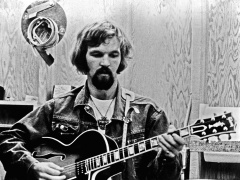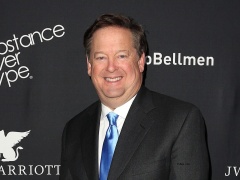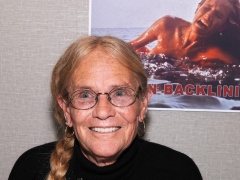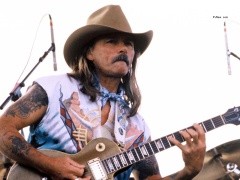
Actor Robert Blake, a man with a long and complex legacy, has died, a representative for his son-in-law Gregg Hurwitz confirmed to PvNew.The former child actor was best known for his Emmy-winning role as the cockatoo-owning undercover cop in the popular 1970s TV series “Baretta” and, more infamously, for his trial following the 2001 murder of his wife. He was 89.
As reported by the Associated Press, Blake died from heart disease on Thursday at his home in Los Angeles.
These two aspects of Blake’s legacy were inseparable in some ways, and the personal turmoil that made the latter at least circumstantially plausible (the case against Blake hinged on motive — he may have wanted to be free of his rocky marriage) fueled his acting.
Blake was acquitted of the murder charge, as well as of one count of soliciting murder, in his criminal trial in 2005, but in a civil trial later that year, he was found liable for the wrongful death of his wife, Bonny Lee Bakley, and ordered to pay her family $30 million, a sum later halved by an appeals court. (Blake filed for bankruptcy in 2006.)
Upon news of Blake’s possible involvement in Bakley’s murder, many remarked about the “eerie” similarity to the actor’s most famous film role in Richard Brooks’ 1967 adaptation of Truman Capote’s novel-as-reportage “In Cold Blood,” in which Blake and Scott Wilson played the young killers of an entire Kansas family.Speaking in a 2011 interview with Tavis Smiley, Blake acknowledged, “If I weren’t so sick and so troubled, I might not have been an actor.”
“Baretta” creator Stephen J. Cannell (who died in 2010) once noted that Blake was as brilliant as Baretta but that “the devil gets into him,” creating part of the intensity seen onscreen. “I think he uses it in the performance,” Cannell said.
“Baretta” came along when Blake was near the top of his acting game. ABC was in talks with the actor when the acclaimed series “Toma” ran from 1973-74. That gritty series based on the real-life experiences of an unconventional undercover cop starred Tony Musante. According to Cannell, Musante declined to continue after the first season, and the network was in search of a similar show.
No other casting choices were discussed, according to Cannell. Blake was adamant that he wouldn’t star in any actor’s “cast-off show,” but Cannell, with copious notes from Blake, created a script that kept key elements of the original — such as the lead character’s penchant for disguises — while allowing for departures for Blake.
Producer Roy Huggins confirmed Blake’s intense participation in the production of the series. “No actor had been that involved,” he said. He also noted that Blake always had an agenda, a vision he wanted to implement.
The show ran from 1975-78 and earned Blake an Emmy for outstanding lead actor in a drama series in 1975 and another nomination in 1977.
Born Michael Gubitosi in Nutley, N.J., Blake came from a family of performers. At a young age, he appeared along his siblings in his parents’ vaudeville troupe. When he was a young child, his parents moved the family to Los Angeles, where he and his siblings began working as movie extras. (“For his entire professional life he was haunted by resentment about the way his family and the studios treated him as a hard-working child star,” Roger Ebert wrote of Blake.)
Blake’s film debut came in 1939’s “Bridal Suite,” starring Robert Young and the French actress Annabella. He appeared in MGM’s “Our Gang” shorts starting with 1939’s “Joy Scouts” under the name Mickey Gubitosi. Between 1939 and 1944, he appeared in more than 40 of the shorts.
In 1940, he had a bit part in the Myrna Loy-William Powell film “I Love You Again.” During the 1940s, he segued from bit parts to leads (the drama “Mokey” in 1942) and appeared in a small but important role in John Huston’s “The Treasure of the Sierra Madre” in 1948.
During the 1950s, Blake transitioned to adult roles in action films and Westerns like “Apache War Smoke” (1952), “Screaming Eagles” (1956) and “The Tijuana Story” (1957). He also appeared on TV anthology series such as “Fireside Theatre” and “Zane Grey Theater,” as well as Western/adventure series including “The Roy Rogers Show,” “The Cisco Kid,” “Adventures of Wild Bill Hickok” and “Whirlybirds.”
In the 1960s, he moved into more prominent roles, such as in “PT 109” (1963), starring Cliff Robertson and Robert Culp, and in 1965 religious epic “The Greatest Story Ever Told.” He also continued steady work in TV, appearing in such series as “Wagon Train,” “Ben Casey” and “Rawhide.”
His most memorable film role came in 1967’s “In Cold Blood.” Blake turned in perhaps his most chilling performance as drifter killer Perry Smith; Anthony Hopkins is said to have watched Blake’s performance multiple times in preparation for his role as Hannibal Lecter in the film “Silence of the Lambs.”
Ebert wrote in 1968, “The actors, Robert Blake (Smith) and Scott Wilson (Hickock), are so good they pass beyond performances and almost into life.”In reappraising the film in the wake of Blake’s murder trial in 2002, Ebert wrote: “Robert Blake, in person and in many of his characters, seems born to be a victim pushed around by others, dismissed because of his short stature, carrying old grievances and wounds. Blake’s unhappy childhood seems to find a mirror in the tortured childhood of Perry Smith.”
Blake followed this career high with a handful of films, including Abraham Polonsky’s well-regarded message Western “Tell Them Willie Boy Is Here” (1969), in which he played a Native American on the run after killing someone in self-defense. In “Electra Glide in Blue” (1973), Blake played a decent motorcycle cop in the Arizona desert who’s slammed by the system.
In 1975, the actor began his run as the title character in “Baretta,” a street-smart undercover cop who lived with a cockatoo named Fred. The show cracked the top 10 during the 1976-77 season before its cancellation in 1978.
The 1970s brought professional success but also addiction for Blake, who said, “I was strung out on heroin for two years, stole, smashed motorcycles into trees, boozed, ate pills by the handful. . . . Self-destruction? I could write a book.”
Following “Baretta,” Blake worked in string of TV movies, including a well-reviewed adaptation of Steinbeck’s “Of Mice and Men” in 1981. He picked up an Emmy nomination for his complex, charismatic portrayal of Jimmy Hoffa in the Mike Newell-directed “Blood Feud” (1983).
Blake made a brief return to series television in 1985 with NBC’s “Hell Town,” about an inner-city priest fighting crime; he also penned the story for the telepic that led to the series.
The actor then dropped out of the spotlight for nearly a decade, returning in the 1993 CBS telepic “Judgment Day: The John List Story.” His turn as an accountant who becomes a mass murderer earned him an Emmy nomination.
Blake’s last appearances were in the film “Money Train” (1995), in which he played a villainous transit chief, and David Lynch’s “Lost Highway” (1997), in which he was memorable as the frightening Mystery Man in white pancake makeup.
In May 2001, the actor was thrust back into the spotlight when Bakley was murdered in Blake’s car in the parking lot of Italian restaurant Vitello’s in Studio City where the couple had just dined. He was arrested for the crime in 2002; the general consensus was that the prosecution’s case was weak in almost every respect, resulting in an acquittal.
Nevertheless, the case put an end to his acting career, and Blake kept a low profile in the following years, though he did appear on Tavis Smiley’s PBS talkshow in December 2011. In July 2012 he appeared on Piers Morgan’s CNN show to promote his upcoming autobiography, but erupted when Piers Morgan questioned whether the actor was telling the truth about the case. His memoir “Tales of a Rascal: What I Did for Love” subsequently appeared.
Blake is survived by his children with his former wife, actress Sondra Kerr — actor Noah Blake and Delinah Blake — and by a daughter, Rose, with Bakley.






